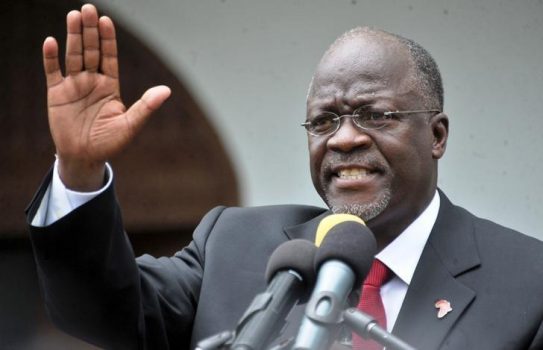
The Tanzanian government on Tuesday dismissed reports that it had blocked the publication of a critical International Monetary Fund (IMF) report which accused President John Magufuli’s government of undermining economic growth with unpredictable policies.
In the leaked report seen by media houses last week, the Fund said a weak business environment and the implementation of projects that may not have high rates of return were likely to constrain the country’s annual GDP growth.
Reacting to the accusation, the Tanzanian Minister of Finance and Planning, Philip Mpango told the country’s parliament that the government did not block the report but was rather dialoguing with the IMF on the implications of the report.
“The government is still holding consultations with the IMF. We have not blocked the report in any way whatsoever. They should not rush this debate, we are still consulting with the IMF on this report,” Mpango told the country’s parliament.
“Under the IMF’s own procedures, they submitted their draft report to us which I received on March 18 but our views are yet to be included (in the final report),” the minister added.
Although the IMF agrees that consultations with the Tanzanian government had been taking place, it however says it was up to the government to consent to the publication of the report as the Fund does not comment on the contents of leaked reports.
Magufuli’s government has embarked on ambitious programmes of industrialization but foreign investments in the country have fallen following contentious government interventions in the mining and agriculture sectors.
The IMF had projected a rate of GDP growth of around 4-5 percent in the medium term should current policies continue. That forecast differed from the government’s projection that the economy would grow by 7.3 percent in 2019 after an estimated 7.2 percent expansion last year.
The IMF report also said that there were serious weaknesses in official data with other indicators pointing to a more subdued pace of economic activity in the East African country.

Biden Administration Imposes New Sanctions On Iran Following Attack On Israel
Israel’s European Allies Urge Restraint Amid Escalating Tensions With Iran
Israel Prepares For Possible Attack From Iran As Tensions Escalate
Senegal’s President Bassirou Appoints Ousmane Sonko As New Prime Minister